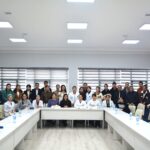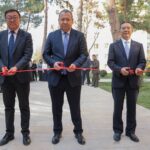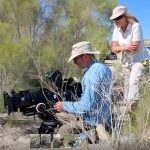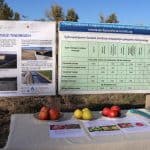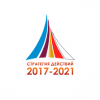With the support of JICA, from July 17 to 28, 2023, within the framework of the Uzbek-Japanese SATREPS project, a trip to Japan was organized and a training was conducted for Uzbek scientists and students at Japanese universities. This course is one of the first scientific, educational and applied programs developed by Japanese scientists. This event was attended by 15 scientists and students from various research higher institutions and organizations of Uzbekistan (including the National University of Uzbekistan, Tashkent Institute of Irrigation and Agricultural Mechanization Engineers, Karakalpak State University, Karakalpak Institute of Agriculture and Agrotechnologies, Aral Sea International Innovation Center, UzGIP, Institute of the Sun, Institute of Botany of the Academy of Sciences of the Republic of Uzbekistan, Institute of Bioorganic Chemistry of the Academy of Sciences of the Republic of Uzbekistan and Uzhydromet) The trip to Japan was funded by the Japan International Cooperation Agency (JICA) within the framework of the SATREPS project. Trainings and practical classes were held at Kyoto University, Mie University, Kobe University and Tottori University located in 4 cities of Japan. The participants of the training, consisting of 15 people, were divided into small groups depending on their interests and worked in the laboratories of universities directly with key Japanese partners. The structure of the training course covered the entire spectrum of the SATREPS project and was presented by a series of theoretical lectures and practical exercises conducted by professors from Japanese universities, members of the Japan-Uzbekistan project. The participants of the training acquired advanced skills in the use of Geostationary Meteorological Satellites (Meteostat and MSG1) for warning and warning of dust and salt storms, analysis of meteorological and hydrological data using modern methods of interpretation, development of scenarios for the sustainable use of water and land resources, analysis of satellite data, mapping and interpretation of information received by drones. Moreover, the workshop participants were aware of best practices in water management, water saving technologies and basic knowledge of arid halophytic agriculture, including the use of isotope analysis and biological markers in the process of selecting salt- and drought-tolerant species and crops. As part of a scientific group, Ismail Asanov, an employee of the International Innovation Center of the Aral Sea Region, underwent practical training at the Arid Lands Research Center of Tottori University (ALRC) under the guidance of Professor N. Fujimaki. During the training, skills were mastered in calibrating soil sensors and processing the received data from the WASH_2D model. Work was also carried out to study the technology of “absorption of water by roots”. The training was attended not only by students, but also by Uzbek scientists, which made it possible to quickly create mutual understanding and strong ties with Japanese partners. Participants were given a three-day field workshop in Shiga Prefecture, where they demonstrated the integrated circular system of rice and aquaculture in the context of sustainable water management, production and processing of finished products, logistics and marketing. During the field practice, meetings were organized with farm managers, farmers themselves and representatives of the private agricultural sector, who exchanged information on organizing a sustainable agro-aquaculture model in Japan, taking into account world experience using new precision digital farming technologies.
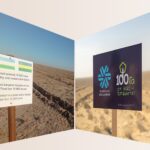
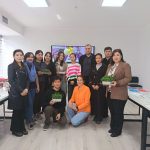
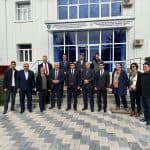
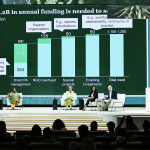
Полезные ссылки

International innovation Center for Aral Sea basin
Адрес: ССГ Саманбай, Нукус 230100, Республика Каракалпакстан, Узбекистан
Телефон: +998 (61) 225-74-56
Эл. почта: info@iic-aralsea.uz, iic-aralsea@exat.uz
Режим работы: Понедельник-Пятница, с 09:00 до 18:00
Открыть в яндекс.карты
